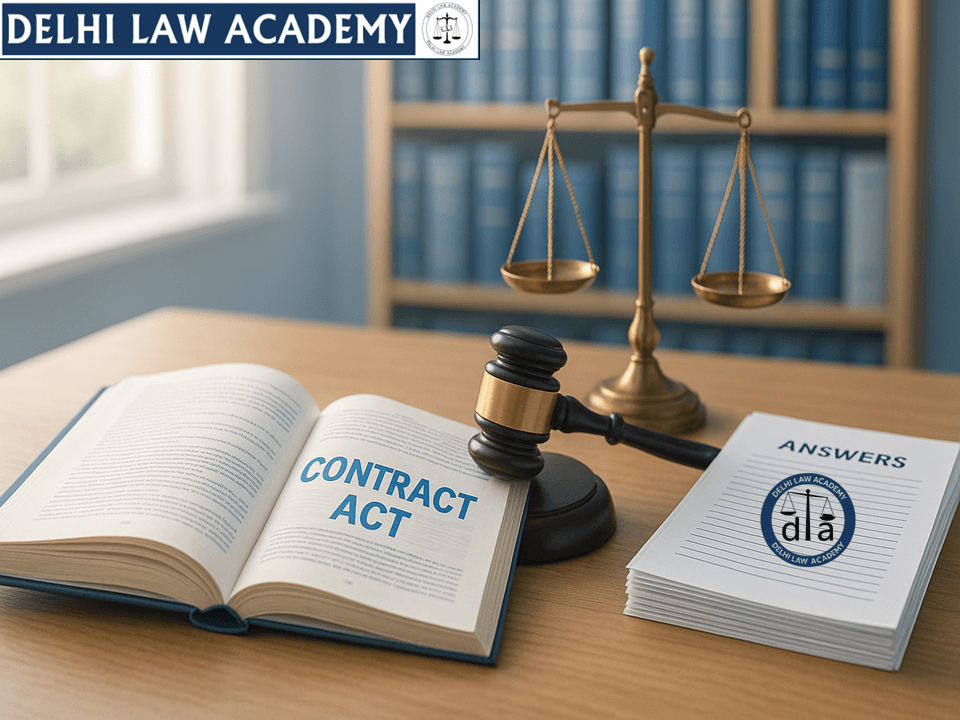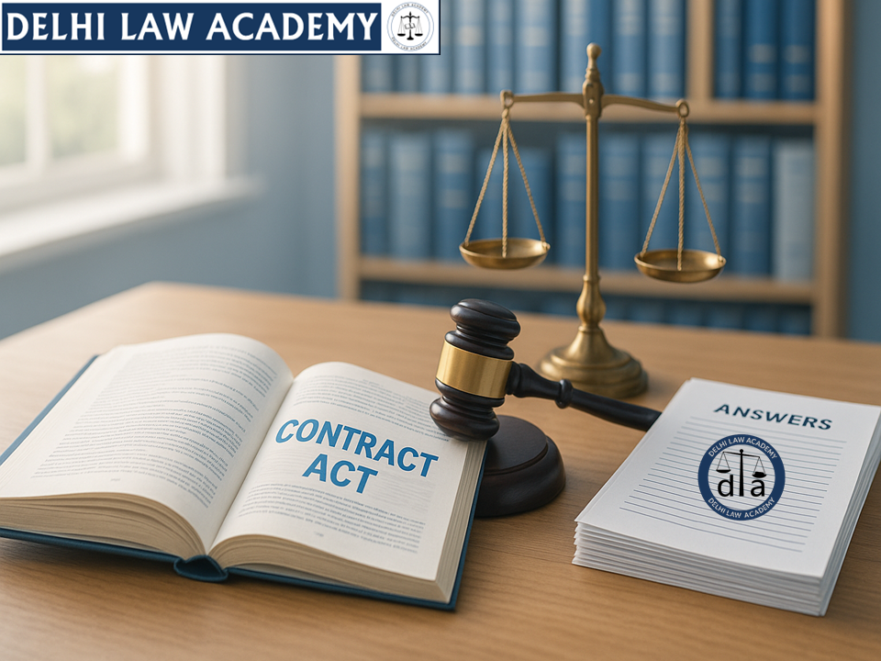
📘 The Indian Contract Act 1872: Sections 31 – 55
“Contingent contract” defined
Section 31
A “contingent contract” is a contract to do or not to do something if some event, collateral to such contract does or does not happen.
A contracts to pay to B Rs.10,000 if B’s house is burn. This is a contingent contract.
Contracts contingent on an event happening
Section 32
Contingent contracts to do or not to do a thing if an uncertain future event happens cannot be enforced by law unless and until that event has happened.
If the event becomes impossible such contracts become void.
(a) A makes a contract with B to sell a horse to B if C, to whom the horse has been offered, refuses to buy him. This contract cannot be enforced by law unless and until C refuses to buy the horse.
(b) A contracts to pay B money when B marries C. C dies without being married to B Contract becomes void.
Agreements contingent on impossible event
Section 36
Contingent agreements to do or not to do a thing if an impossible event happens are void whether impossibility of the event is known or not to the parties at the time when it is made.
(a) A agrees to pay B 1,000 rupees if two straight lines should enclose a space Agreement is void.
(b) A agrees to pay B 1,000 rupees if B will marry A’s daughter C C was dead at the time of agreement Agreement is void.
Obligations of parties to contract
Section 37
Parties to a contract must either perform or offer to perform their respective promises unless performance is dispensed with or excused under this Act or any other law.
Promises bind representatives of promisors on death of such promisors before performance unless contrary intention appears from the contract.
(a) A promises to deliver goods to B on a certain day on payment of Rs.1,000 A dies before that day. A’s representatives are bound to deliver the goods to B, and B is bound to pay Rs. 1,000 to A’s representatives.
(b) A promises to paint a picture for B by a certain day. A dies before the day Contract cannot be enforced either by A’s representatives or by B.
Refusal of party to perform
Section 39
When a party has refused to perform his promise in its entirety, the promisee may put an end to the contract unless he has signified, by words or conduct, his acquiescence in its continuance.
(a) A, a singer, enters into contract with B, the manager of a theatre to sing at his theatre two nights every week. B agrees to pay 100 rupees for each night. On the sixth night A wilfully absents herself. B is at liberty to put an end to the contract.
(b) In previous illustration: If with assent of B, A sings on the seventh night, B has signified his acquiescence in continuance of the contract. He cannot later put an end to it, but is entitled to compensation for damage caused by A’s failure to sing on the sixth night.
Joint Promise
Section 43
When two or more persons make joint promise, promisee may compel any one or more of such joint promisors to perform the whole promise in absence of a contrary express agreement.
In case of a joint promise: Any joint promisor may compel every other joint promisor to contribute equally with himself to performance of promise unless contrary intention appears from contract.
Sharing of loss: If any one of the joint promisors makes default in such contribution remaining joint promisors must bear the loss arising from such default in equal shares.
A, B and C jointly promise to pay 3,000 rupees to D. D may compel either A or B or C to pay him 3,000 rupees.
A, B and C jointly promise to pay 3,000 rupees to D. C is compelled to pay the whole. A is insolvent but his assets are sufficient to pay one-half of his debts. C is entitled to receive 500 rupees from A’s estate and 1,250 rupees from B.
A, B, C are under joint promise to pay 3,000 rupees to D. C is unable to pay anything. A is compelled to pay the whole. A is entitled to receive 1,500 rupees from B.
Time for performance
Section 46
Where a promisor is to perform his promise without application by promisee and no time for performance is specified it must be performed within a reasonable time.
Place for performance
Section 49
When a promise is to be performed without application by promisee and no place is fixed for its performance it is the duty of the promisor to apply to the promisee to appoint a reasonable place for performance of promise and to perform it at such a place.
Order of performance
Section 52
Where the order in which reciprocal promises are to be performed is expressly fixed by the contract they shall be performed in that order.
Where the order is not so fixed they shall be performed in that order which the nature of transaction requires
A and B contract that A shall build a house for B at a fixed price. A’s promise to build the house must be performed before B’s promise to pay for it.
A and B contract that A shall make over his stock-in-trade to B at a price and B promises to give security for payment of money. A’s promise need not be performed until security is given. Nature of transaction requires that A should have security before he delivers up his stock.
Time is of essence
Section 55
When a party to a contract promises to do a certain thing before a specified time and fails to do so before that time the unperformed contract becomes voidable at the option of the promisee if intention of parties was that time should be of essence of the contract.
Time is not of essence
If it was not the intention of parties that time should be of essence of the contract, contract does not become voidable but the promisee is entitled to compensation from the promisor for any loss caused to him by such failure.
📚 Continue Your Contract Act Preparation
Don’t stop here! Strengthen your knowledge of the Contract Act with our other fully solved tests:
📘 Free Study Material for Judiciary Aspirants!
Download our FREE study material prepared by Delhi Law Academy’s expert faculty.
❓ Frequently Asked Questions (FAQs)
Contact us
📍 Delhi Law Academy – Jaipur Branch
6C, Tower 2, Coaching Hub, Pratap Nagar, Jaipur – 302033
📞 Phone:
+91 9911916552
+91 8447285606
✉️ Email:
contactus@delhilawacademy.com

